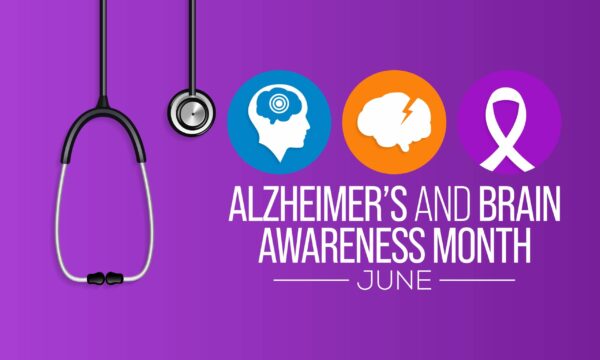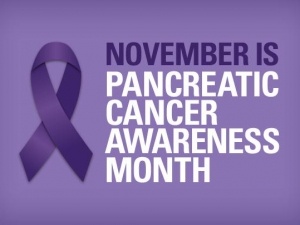
In the midst of June’s fervor for Alzheimer’s awareness, it’s time to recognize that memory matters. This month serves as a rallying cry to join the movement for brain health and take proactive steps to safeguard cognitive function. Let’s delve into practical strategies to champion brain health and honor the importance of memory in our lives.
Prioritizing Brain Health:
Maintaining brain health is crucial for preserving cognitive function and warding off conditions like Alzheimer’s disease. Engage in activities that stimulate the mind, such as puzzles, reading, and learning new skills. Physical exercise is also essential, as it enhances blood flow to the brain and promotes the growth of new brain cells. Make regular exercise a cornerstone of your routine to support long-term brain health.
Nutritional Support for the Brain:
Nutrition plays a pivotal role in brain health. Adopt a brain-boosting diet rich in fruits, vegetables, whole grains, and lean proteins. Incorporate foods high in antioxidants, such as berries, nuts, and leafy greens, to combat oxidative stress and protect brain cells from damage. Additionally, consider supplements like vitamin D and magnesium, which have been linked to improved cognitive function and mood regulation.
Harnessing the Power of Blood Tests:
Blood tests offer a window into our brain health, providing valuable insights for early detection and intervention. Routine blood screenings can assess cholesterol levels, blood sugar levels, and inflammatory markers, which impact brain health. Monitoring these biomarkers allows for timely intervention to mitigate risk factors and optimize brain function.
Insights from Genetic Testing:
Genetic testing empowers individuals to understand their unique risk factors for Alzheimer’s disease. By identifying genetic predispositions early on, individuals can implement personalized strategies to reduce risk and promote brain health. Embrace lifestyle modifications such as maintaining a healthy weight, managing stress, and prioritizing quality sleep to support overall well-being and cognitive vitality.
Conclusion:
As we navigate Alzheimer’s Awareness Month, let’s reaffirm that memory matters. By prioritizing brain health, embracing nutritional support, harnessing the power of blood tests, and gaining insights from genetic testing, we can champion cognitive vitality and honor the importance of memory in our lives. Together, let’s join the movement for brain health and pave the way for a brighter, more resilient future.
Stay tuned for more actionable insights and tips throughout Alzheimer’s and Brain Awareness Month!

Welcome to June, the month dedicated to unlocking minds and fighting against Alzheimer’s and brain fog. As we delve into this crucial awareness campaign, let’s explore effective strategies to combat Alzheimer’s, enhance brain health, and reclaim our cognitive vitality.
Tackling Alzheimer’s:
Alzheimer’s disease poses a significant challenge to individuals and families worldwide. However, advancements in treatments offer hope. From pharmaceutical interventions to lifestyle modifications, there’s a range of approaches to explore. Consult with healthcare professionals to explore options like acetylcholinesterase inhibitors or memantine, which can help manage symptoms and slow disease progression.
Harnessing the Power of Vitamins:
Vitamins play a crucial role in brain health. Incorporating nutrient-rich foods and supplements can provide essential support. Vitamin E, for instance, acts as an antioxidant, protecting brain cells from damage. Omega-3 fatty acids, found in fish oil supplements, promote brain function and may reduce the risk of cognitive decline. Ensure you’re getting an adequate intake of vitamins B6, B12, and folate, as deficiencies have been linked to cognitive impairment.
Blood Tests for Early Detection:
Early detection of Alzheimer’s is key to effective management. Blood tests are emerging as promising tools for diagnosing Alzheimer’s disease, offering a non-invasive and cost-effective alternative to traditional methods. Biomarkers such as amyloid beta and tau proteins can indicate the presence of Alzheimer’s pathology years before symptoms manifest. Speak with your healthcare provider about incorporating these tests into your wellness routine for proactive monitoring.
Unlocking Genetic Insights:
Genetic predisposition plays a role in Alzheimer’s risk. DNA tests, such as genetic screening for the APOE ε4 allele, can provide valuable insights into individual susceptibility. While genetic factors influence Alzheimer’s risk, they don’t determine destiny. Armed with this knowledge, individuals can adopt lifestyle measures to mitigate risk factors and promote brain health.
This June, let’s unite in the fight against Alzheimer’s and brain fog. By embracing treatments, optimizing vitamin intake, leveraging blood tests for early detection, and unlocking genetic insights, we can empower ourselves in the battle for cognitive vitality. Together, we can unlock minds and pave the way for a brighter, brain-healthy future.
Stay tuned for more insights and actionable tips throughout Alzheimer’s and Brain Awareness Month!


